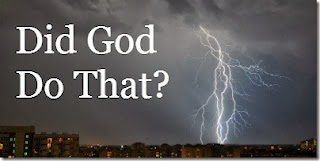The Bible commands us to build in our midst, a sanctuary,
“and, I will dwell amongst them.” G-d dwells not only in the solitary physical
sanctuary built in His honor. The plural tense indicates, that every individual
who builds a refuge for G-d, out of their own life, G-d promises to dwell in
“their” midst.
The sanctuary in the wilderness and in Jerusalem was a place
where sacrifices were offered to G-d, this pleased G-d and invited him into
their midst. The same is with each person who dedicates and turns a portion of
their lives to G-d. This overture, draws G-d towards their direction.
This is why Maimonides writes regarding the disrespect of
ignoring a synagogue-place of worship, “whoever has a synagogue in his
community and ignores praying in it, is called a bad neighbor.” And further. “A
person should always pray in a synagogue, because “Ones prayers are heard, only
in a synagogue.” By comparison with the outside, a synagogue is a place where
He is invited to be, and is where G-d is more reachable and found.
When the Temple in Jerusalem was destroyed by the Romans,
Rabbi Akiva and the other sages went up to Jerusalem and saw a fox running out
of the Holy of Holies. The sages began to weep, and Rabbi Akiva started to
laugh.
The sages had already torn their clothes in an expression of
mourning and grief over the destruction of the Holy Temple. What was it in
seeing the fox frolicking out of the holiest site in the world that caused them
to burst in tears at that moment?
However, here lies a deep concept.
The sages always understood that everything physical has its
spiritual root and counterpart. Just as there is a physical Temple for the
world, every person has a spiritual corresponding Temple and central deep area
inside themselves where they can connect with, and invite G-d, to be part of
their lives. The sages understood that at the basic core of every soul, the
integrity can never be compromised by any enemy, struggle or challenge. After
all, the soul is the spark of G-d Himself.
When they saw the fox who is described as a very smart
animal, as if to indicate the wisdom of the animalistic mentality, invade and
penetrate the holiest site, they were shaken by the thought that perhaps it is
possible that even the core of the world, and the essence of a person, can
become compromised and contaminated. This caused to burst out in despairing
cries.
Rabbi Akiva however, jumped for joy, because his thinking
was. As long as a person doesn’t reach rock bottom in his spiritual descent
(once a person is falling) many times people can deceive themselves into
thinking there really is no destruction, and the connection with G-d and
spirituality is still intact, even while so many things aren't done as they are supposed to be done.
Seeing however that the “fox” was coming out of the deepest
place within, Rabbi Akiva was sure at this point there is no other place to go,
but back up again.
When there is no more fooling oneself over the situation,
this may be the biggest blessing.
Everyone knew the prophets predicted the fall and
destruction of the Temple, and afterwards there would be a rebuilding and
renewal greater and bigger than before the destruction. Rabbi Akiva saw the
positive side of the moment.
Rabbi Akiva’s thinking was that there is nothing to gain in
crying and lamenting the present and or the past. Better to use the momentum
and energy of the moment in order to bring improvement for the future.





